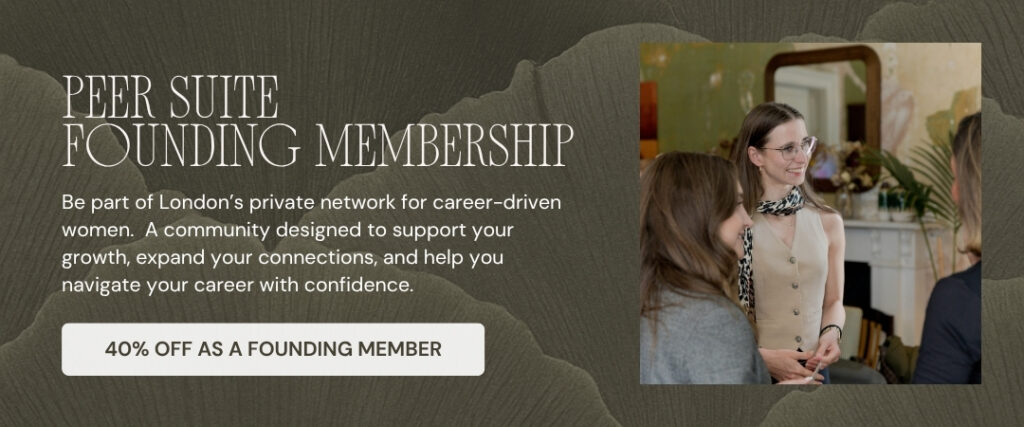December has a way of making you look back and wonder: what did I actually accomplish this year?
Maybe you hit some major milestones or maybe you just survived another year. Or maybe you’re somewhere in between, feeling like the year flew by without you really taking stock of where you are and where you’re going.
We often neglect reflecting on our careers, moving from one project to the next, one deadline to another, without pausing to ask whether we’re actually moving in the right direction.
A year-end career audit changes that. It’s a chance to step back, assess what worked and what didn’t, and make intentional decisions about the year ahead. Not in a “New Year, New You” way that fizzles out by February, but in a strategic way that we start now and stick with.
Spend 30 minutes with these 10 questions to run a simple career audit before the year end.
Contents
Why a Year-End Career Audit Matters
How to Use These Questions
What to Do with Your Answers
Make This Audit Work for You

Why a Year-End Career Audit Matters
Before we get into the questions, let’s talk about why this matters.
When you don’t reflect on your year, you miss important patterns. You forget wins that should be celebrated. You repeat mistakes that could be avoided and you may find yourself drifting along in your career without stepping back and assessing if you are on the right path.
A career audit helps you:
- Recognise your progress (even when it doesn’t feel like you’ve moved forward)
- Learn from challenges without dwelling on them
- Identify what’s working so you can do more of it
- Spot what’s not working before it becomes a bigger problem
- Make strategic decisions about your next moves
- Advocate for yourself with clarity and confidence
How to Use These Questions
Here’s how to make this audit actually useful:
Set aside focused time. Don’t do this while watching TV or between meetings. Give yourself 30-60 minutes of uninterrupted time.
Write your answers down. Thinking about these questions isn’t enough. Writing forces clarity and gives you something to refer back to.
Be honest. This isn’t for your manager or anyone else. The more honest you are, the more valuable this exercise becomes.
Look for patterns. As you answer, notice what themes emerge. Are you constantly stretched too thin? Avoiding difficult conversations? Not asking for what you want?
Turn insights into action. Reflection without action is just journaling. At the end, identify 2-3 concrete things you’ll do differently based on what you’ve learned.
Question 1: What was my biggest career win this year?
Start with the positive. What are you most proud of from the past year?
This doesn’t have to be a promotion or a major project (though it can be). It could be:
- Finally having that difficult conversation you’d been avoiding
- Setting boundaries at work and actually sticking to them
- Building a new skill that expanded your capabilities
- Successfully managing a challenging team member
- Negotiating a pay rise
- Making a career move you’d been thinking about for ages
Why this matters: We often focus on what we didn’t do and forget to acknowledge what we actually achieved. Starting here reminds you that you made progress, even if it doesn’t always feel like it.
Follow-up: What made this win possible? Can you replicate those conditions for future successes?
Question 2: What challenged me most this year, and what did I learn from it?
Now let’s look at the hard stuff. What was your biggest struggle, setback, or challenge?
Maybe it was:
- A project that didn’t go as planned
- A difficult relationship with a colleague or manager
- Burnout or feeling constantly overwhelmed
- Not getting a promotion you wanted
- Imposter syndrome holding you back
- Struggling to balance work and life
Why this matters: Challenges give you information. By understanding what didn’t work and why helps you make better decisions going forward.
Follow-up: What would you do differently if you faced this situation again? What support or resources did you need that you didn’t have?
Question 3: Did I grow the skills I wanted to this year?
Think back to January. What skills did you want to develop? Did you make progress on them?
If you tracked your professional development, this is easy to answer. If you didn’t, think about:
- New tools or systems you learned
- Soft skills you improved (communication, leadership, negotiation)
- Technical skills you developed
- Courses or training you completed
- Projects that stretched you beyond your comfort zone
Why this matters: Skill development is how you stay marketable and move forward in your career. If you spent the year doing the same things you already knew how to do, that’s useful information and something to think about for the next year if you are seeking a career change or more responsibility.
Follow-up: Are the skills you’re developing aligned with where you want to go? Or are you growing in directions that don’t serve your long-term goals?
Question 4: Am I closer to my long-term career goals than I was a year ago?
This is the big picture question. Where did you want to be by now? Are you on track, off track, or somewhere in between?
Your goals might have been:
- Reaching a certain seniority level
- Moving into a different function or industry
- Building specific expertise
- Achieving financial milestones
- Creating more flexibility or balance
- Starting your own thing
Why this matters: It’s easy to stay busy without actually moving toward what you want and this question helps you assess whether you’re progressing or just treading water.
Follow-up: If you’re not closer to your goals, why not? Has the goal changed, or have you not taken the necessary steps? Is it time to adjust the goal or adjust your approach?
For more on setting strategic career goals, check out the 4×6 method for career planning.
Question 5: Did I advocate for myself enough this year?
Think about times when you could have spoken up for yourself but didn’t.
Examples might include:
- Not asking for a raise when you deserved one
- Taking on extra work without pushing back
- Letting someone else take credit for your ideas
- Not correcting misconceptions about your contributions
- Staying quiet in meetings when you had valuable input
- Not negotiating offers or opportunities
Why this matters: Advocating for yourself is a skill that directly impacts your career trajectory. It is very easy to think that good work speaks for itseld, but often that is not always the case.
Follow-up: What stopped you from advocating for yourself? Fear? Lack of preparation? Not knowing what to say? What can you do to make it easier next time?
Question 6: What boundaries did I maintain (or fail to maintain)?
Boundaries are essential for sustainable career success. How did you do this year?
Consider:
- Working hours (did you log off on time or constantly work late?)
- Saying no to requests that weren’t your responsibility
- Protecting focus time for deep work
- Taking your full holiday allowance
- Not checking emails outside working hours
- Delegating instead of doing everything yourself
Why this matters: Boundary failures lead to burnout, resentment, and reduced productivity. Identifying where your boundaries slipped helps you strengthen them going forward. Read this for more on how to set and stick to work boundaries.
Follow-up: Which boundary is most important for you to set or maintain next year? What specific steps will you take to enforce it?
Question 7: Who in my network added the most value this year?
Think about the people in your network who made a difference for you this year.
This might include:
- A mentor who gave you valuable advice
- A colleague who championed your work
- A contact who connected you to an opportunity
- A manager who advocated for you
- Peers who supported you through challenges
- Someone who challenged your thinking in a useful way
Why this matters: Knowing who adds value helps you prioritise where to invest your networking time and energy. It also reminds you to express gratitude and maintain those relationships.
Follow-up: Have you thanked these people? How can you add value back to them? Are there relationships you’ve been neglecting that you should re-engage with? Now is a great time to check in with them and say thank you for their support throughout the year.
Question 8: What opportunities did I say yes (or no) to, and were those the right choices?
Think about the opportunities that came your way this year and how you responded.
Examples:
- Projects you took on (or turned down)
- Job offers or interview opportunities
- Speaking engagements or visibility moments
- Leadership or stretch assignments
- Networking events or introductions
- Learning opportunities
Why this matters: Your yes/no decisions can have an impact on your career path, and reflecting on whether those decisions served you well helps you make better choices going forward.
Follow-up: Were you saying yes to everything out of obligation? Were you saying no because of fear? What criteria will you use to evaluate opportunities next year?
Question 9: What’s one thing I wish I’d done differently this year?
If you could go back and change one career decision from this year, what would it be?
Maybe you wish you’d:
- Asked for help sooner when you were struggling
- Had a difficult conversation earlier instead of letting it fester
- Applied for a role you talked yourself out of
- Been more strategic about workload management
- Invested in professional development sooner
- Been braver about sharing your ideas
Why this matters: Try not to think of this reflection as regret, instead this is a way of understanding what you’d do differently with the benefit of hindsight so you can use that infomration to make make better choices next time.
Follow-up: What stopped you from making that choice at the time? What can you put in place to make the better choice next year?
Question 10: What do I want to be different this time next year?
Finally, look forward. When you’re doing this audit again next December, what do you want to have accomplished?
Be specific:
- A certain role or seniority level?
- Financial goals (salary, savings, investments)?
- Skills you want to have mastered?
- Boundaries you want firmly in place?
- A different work environment or company?
- Better work-life balance?
- Feeling more confident or less stressed?
Why this matters: This is where your reflection turns into action and you can get clear on what you want to be different helps you make intentional choices throughout the year to get you there.
Follow-up: What’s one thing you can do in January to start moving toward that goal? What obstacles do you anticipate, and how will you handle them?
What to Do with Your Answers
You’ve done the hard work of honest reflection. Now what?
Step 1: Identify patterns
Look across your answers. What themes emerged? Are you constantly overwhelmed? Not advocating for yourself? Avoiding necessary conversations? Letting boundaries slip?
Write down the top 2-3 patterns you notice.
Step 2: Celebrate your wins
Before you jump into fixing everything, take a moment to acknowledge all the things that went well.
Step 3: Choose 2-3 priorities for next year
Based on what you’ve learned, what are the most important things to focus on? Don’t try to change everything at once. Pick the 2-3 shifts that will have the biggest impact.
Examples:
- “I need to be more strategic about which opportunities I say yes to”
- “I need to have the difficult conversation about workload with my manager”
- “I need to build my network to support my next career move”
- “I need to find opportunities to show my leadership skills to set me up for a promotion”
Step 4: Turn priorities into actions
For each priority, identify one concrete action you’ll take in January. Make it specific and achievable.
Examples:
- Set up a career tracking system and block 10 minutes every Friday to update it
- Create criteria for evaluating opportunities (does it align with my goals, teach me something new, or advance my career?)
- Ask your current network for introductions that will support your career move plans
Step 5: Schedule your next audit
Put a reminder in your calendar for next December (or quarterly if you want to check in more frequently).
Make This Audit Work for You
You don’t have to answer all 10 questions in one sitting and you don’t have to write essays for each one. The point is to spend some time refecting on the year before you start looking forward and making all your new year resolutions.
The time spent reflecting will allow you to create goals that actually make sense and align with where you want your career path to lead to.
Ready to take action on what you’ve learned? Join the Peer Suite community for resources, accountability, and support as you navigate your career with intention. Learn more about membership here.
Want to dive deeper into year-end planning? Check out how to finish the year strong and career moves you can make before year-end.

24
Oct
